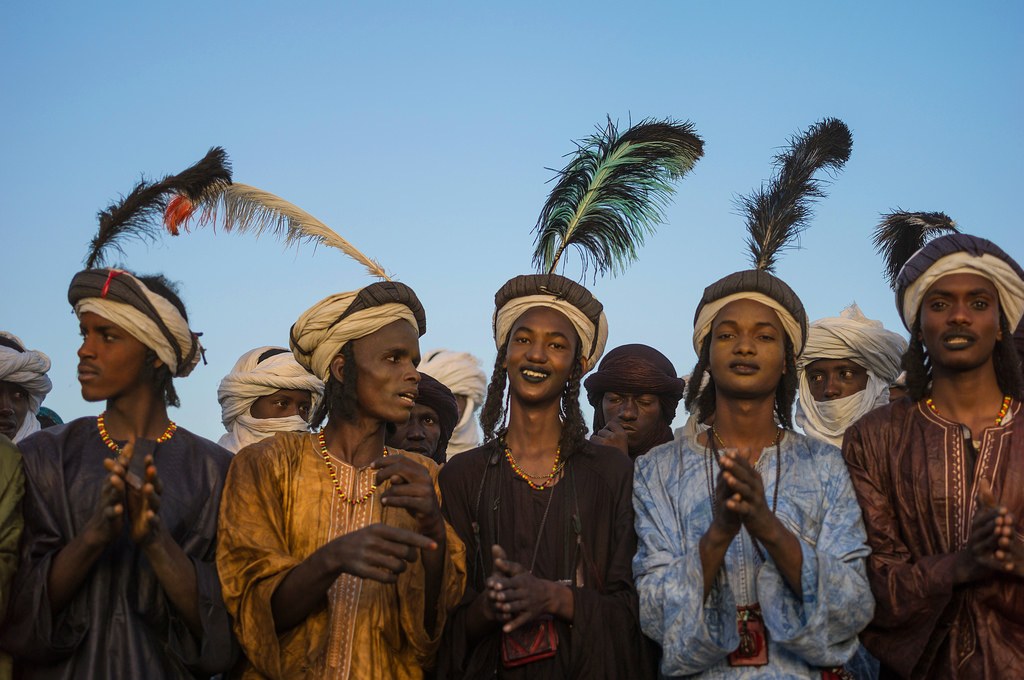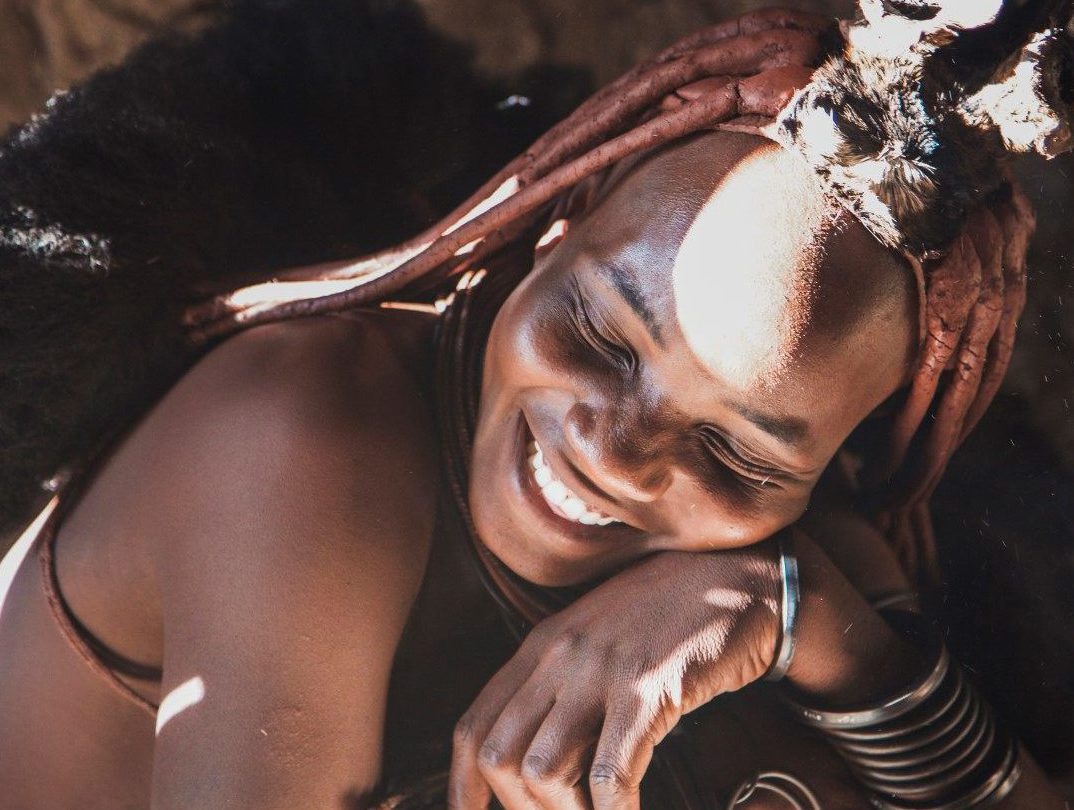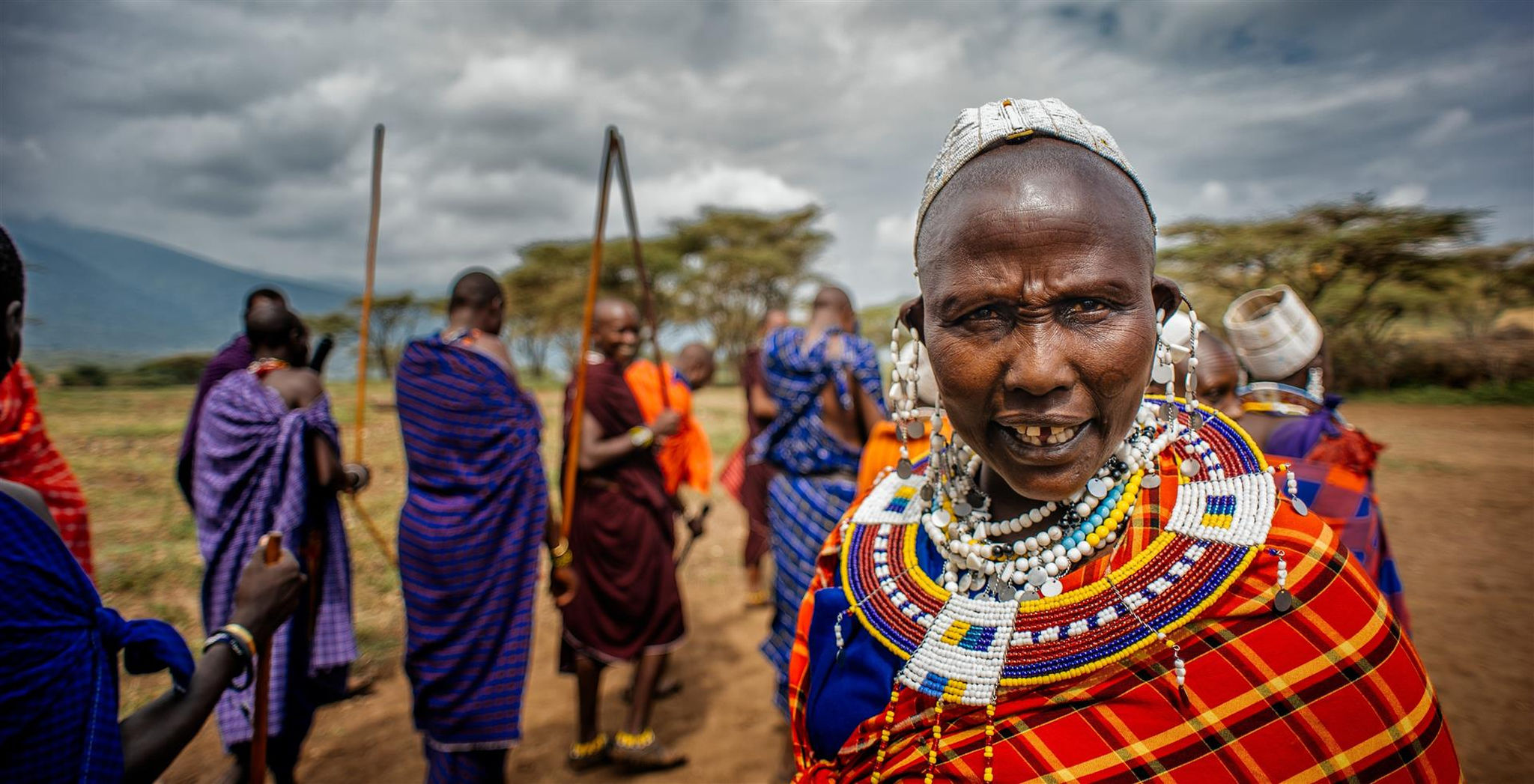From the San people of South Africa all the way up to the Berbers in Morocco, Africa is the origin of myriad tribes – in fact, there’s estimated to be about 3,000. With so many unique groups comes quite a few fascinating tribal traditions. Some we’ll never know about, but others we’ve been lucky enough to catch a glimpse of. These seven tribal traditions are just a small part of what makes the people of Africa so spellbindingly colourful.
1. The courtship dance of the Wodaabe

Photo Credit: Alfred Weidinger
Birds do it. Bees do it. We’re talking, of course, about a courtship dance. In the Wodaabe tribe of Niger, the human mating ritual takes a page from nature’s book. The Guérewol is an annual ritual and competition that sees young men dress up in elaborate ornamentation and traditional face paint and gather in lines to dance and sing. The goal? To get the attention of one of the judges – a marriageable young woman. In this particular tribe, the male beauty ideal is all about bright eyes and teeth, so men will often roll their eyes and bare their teeth to show off their sex appeal.
2. The lip plates of the Mursi

The Mursi tribe of Ethiopia is one of the last tribes in Africa where it’s the norm for women to wear large pottery or wooden plates in their lower lips. When a Mursi girl reaches the age of 15 or 16, her lower lip is cut by her mother or another older woman in the settlement. The cut is held open by a wooden plug for about three months while it heals. Mursi members are rather egalitarian – girls are never forced to have their lip pierced; it’s a totally personal choice. (Of course, 16 is the prime age for peer pressure no matter your culture, and this is often the reason girls opt for the lip plate.)
3. The bull jumping of the Hamar

Photo Credit: www.j-pics.info
Ethiopia’s Hamar tribe (also known as the Hamer tribe), made up mostly of pastoralists who respect and treasure their cattle, has a rather… athletic initiation ritual. Forget cow tipping – this tradition is all about the art of bull jumping. Bull jumping is a three-day rite of passage that all boys must partake in, and it’s extremely important for the dignity of both the initiate and his family. The initiate must walk over 15 castrated bulls that have been rubbed in dung to make their backs slippery (and the task that much tougher). If he fails, he’ll have to wait a whole year to try again. And if he succeeds? It means he’s ready to marry a girl of his parents’ choosing, and to raise his own children and cattle.
4. The red ochre of the Himba

Photo Credit: Jessica Mulder
The women of this iconic Namibian tribe are known for their beautiful, red-tinged skin and hair. The reason for the rich colour? A homemade paste of butter, fat and red ochre known as otjize. Girls in the tribe start using otjize as soon as they’re old enough to care for their own hygiene. There has long been speculation around exact origins of the practice, with many people claiming it acts as sun protection or insect repellent. But the Himba tribe says it’s purely for aesthetic reasons – effectively a traditional make-up they apply every morning in the same way we’d slap on a lick of mascara and lipstick.
5. The spitting of the Maasai

Rhino Africa Image Bank
The Maasai people of Kenya and Northern Tanzania view spitting as a form of blessing and a sign of respect. Tribespeople use spitting to greet or say goodbye to friends, clinch a bargain or to wish someone good luck. Two friends greeting each other will spit in their palms before shaking hands. When a baby is born, family members will spit on the child to wish him or her a long life and good luck. Spitting is also customary on a daughter’s wedding day, where her father will spit on her forehead to wish her a blessed union.
6. The healing dance of the San

Photo Credit: Rhino Africa Image Library
Of all the tribal traditions, this one is arguably the most magical. For the San people of South Africa, Namibia, Botswana and Angola, dance is considered a sacred power. One of their most integral tribal traditions is the trance dance (also known as the healing dance). The whole community comes together around a fire for several hours or even an entire night, led by healers and elders. The healers dance around the fire, chant and hyperventilate until they induce a powerful trance-like state. In this state, they are granted access to the spirit world (and are often able to walk over fire). The San healers aren’t just doing this to cure physical illnesses in their community – they also attempt to expel what they call “star sickness”, a force that causes jealousy, anger and arguments.
7. The wedding ceremony of the Ndebele

Photo Credit: South African Tourism
The Ndebele wedding ceremony is all about the bride – and her attire puts western white dresses to shame. This, in most part, is thanks to her future mother-in-law and the prettiest of all the tribal traditions. The groom’s mother creates a Jocolo for the bride – an apron made of goatskin and decorated with gorgeous, colourful beads. The Jocolo is worn by all married women at the wedding ceremony, and is representative of a mother surrounded by children. On their wedding day, the groom performs a ceremony in honour of his new wife, giving her thanks and credit for everything she’s done for him in their time together.
Every movement, every gesture during the ceremony is a reflection of not just the union of two people but the joining of families and traditions that will carry forward for generations. Much like the symbolic beading, weddings around the world often weave together layers of history, emotion, and personal touches that make each celebration profoundly unique.
Preserving these stories in a way that feels authentic and timeless is what transforms a wedding into more than just a memory. Couples often want their day to be remembered not only for its beauty but for the emotions that unfolded in every candid glance and heartfelt embrace. This is why choosing a Colorado Wedding Photographer becomes such an essential decision, as the right eye behind the lens can capture not just the posed portraits but the genuine, fleeting moments that often define the day. From the vibrant colors of cultural attire to the quiet intimacy of shared vows, photography ensures that the legacy of a wedding lives on, allowing couples to revisit their love story in vivid detail for years to come.
If you want to know more about African tribes and their tribal traditions, take a look Step back in Time with the Zu/’hoasi Bushmen of Botswana before planning your trip to see these incredible sights with your own eyes.
Featured Image Credit: Sally


Thank you so much for the post on Amazing African Tribal Traditions.
Very insightful and relevant to my arts and craft project which promotes African Cultural Heritage.
Much appreciated!
Mems
Wow! Africa indeed value their traditions highly. I love how they happily perform every ritual beside the fact that it somewhat requires a little sacrifice on their bodies. We can see on these celebrations how they truly value marriage and commitment.
Lovely n unique !
Wow! Indeed a beautiful traditions of native people of Africa. I actually just saw a post about their tradition specifically the lip plate thing in FB and my curiousity led me here. These different traditions indeed added to my knowledge.
Its amazing post African culture is unique. Thanks for sharing this please share like is post more.
its good and valuable to know about African traditions and give them respect the same.
Thanks for sharing this valuable information about Pictures Of African Culture. Thanks
I appreciate this article because it helped me with my sub-saharan africa presentation and it included amazing traditions I have never heard of.
Hi Avery,
Thank you so much for your comment.
That’s amazing! We are glad we could help 🙂
Wishing you all the best!
Sunny regards from Cape Town,
The Rhino Africa Team
Very precise work that make everyone understand. Thanks
Hi there,
Thank you so much for your feedback, we really appreciate it.
Warm regards from Cape Town 🙂
The Rhino Africa Team
Amaizing…… African culture is breathtaking. realy helped with my SBA assignment.
Thanks
Wow! I love learning about African Traditions! This also really helped me understand a lot more about well African Traditions.
Hello Lucy,
Thank you for reading. It is a joy for us to share a part of who we are with the world.
Best regards
The Rhino Africa team
Kuomboka ceremony, Zambia
Amazing pictures like going back 10,00 years in time.